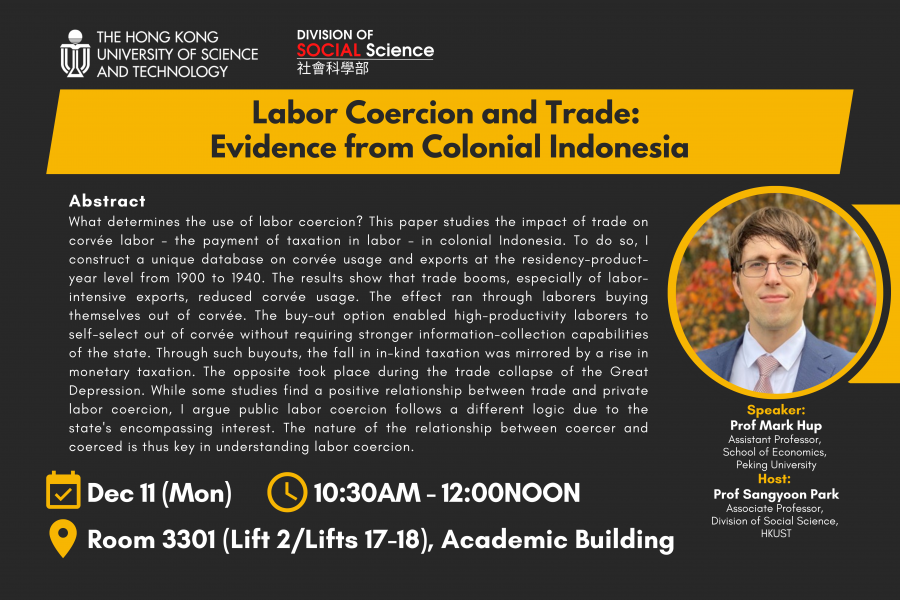What determines the use of labor coercion? This paper studies the impact of trade on corvée labor – the payment of taxation in labor – in colonial Indonesia. To do so, I construct a unique database on corvée usage and exports at the residency-product-year level from 1900 to 1940. The results show that trade booms, especially of labor-intensive exports, reduced corvée usage. The effect ran through laborers buying themselves out of corvée. The buy-out option enabled high-productivity laborers to self-select out of corvée without requiring stronger information-collection capabilities of the state. Through such buyouts, the fall in in-kind taxation was mirrored by a rise in monetary taxation. The opposite took place during the trade collapse of the Great Depression. While some studies find a positive relationship between trade and private labor coercion, I argue public labor coercion follows a different logic due to the state's encompassing interest. The nature of the relationship between coercer and coerced is thus key in understanding labor coercion.
Mark Hup is an applied economist specialized in economic history, public economics, and development. His main strand of research focuses on the impacts of trade shocks and state capacity on fiscal modernization, a key aspect of long-run development. Specifically, he studies the transition from in-kind taxation to monetary taxation and asks how and why money-based and centralized fiscal institutions emerged. Beyond this strand of research, he also studies migration, the economic consequences of coercion, and the role of monetary policy risk in financial markets.
Host: Prof Sangyoon Park, Associate Professor, Division of Social Science, HKUST

